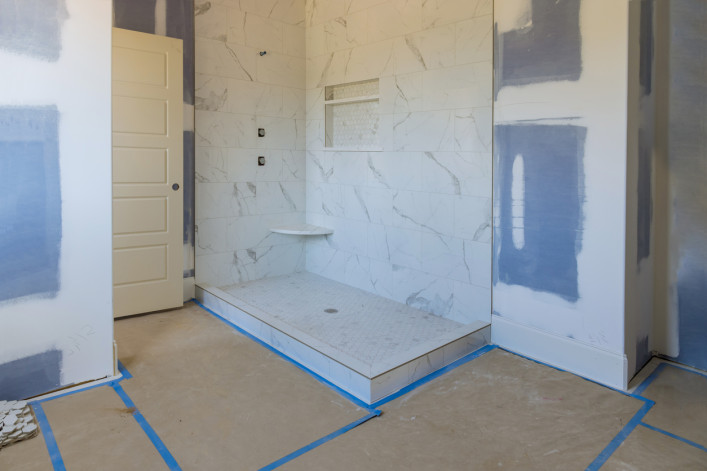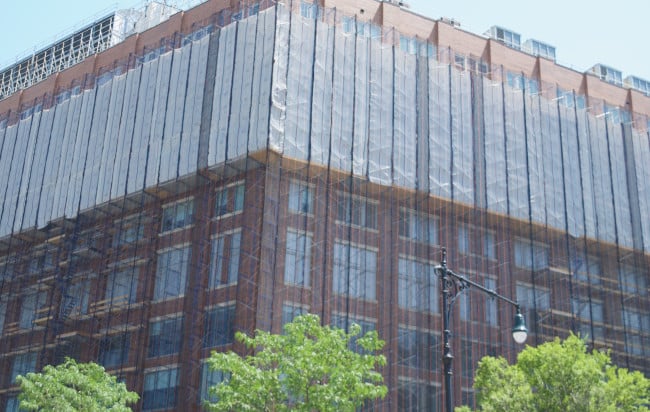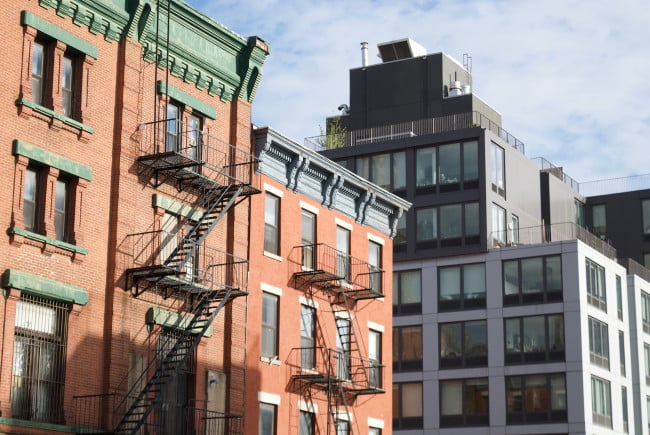A shareholder’s renovation doesn’t match the plans. Is there anything we can do?

Depending on the alteration agreement, it’s likely a co-op board may be able to get non-conforming work removed and replaced.
iStock
Our property manager discovered a shareholder’s renovation doesn’t match the plans we approved. Our building’s attorney says there is nothing our board can do about it. Is that correct?
“A co-op board does have options in this situation and they will be outlined in the alteration agreement signed by the shareholder and board before the renovation was started,” says Niki Khindri, an attorney at New York City real estate law firm Adam Leitman Bailey P.C. where she focuses on real estate transactions and co-op and condo law.
Co-ops generally require an alteration agreement to be in place before a shareholder’s renovation can move forward.
“Some have provisions that are stricter than others,” Khindri says, but typically consent for the work is issued by the co-op based on the proposed plans submitted by the shareholder and approved by the board.
The agreement may also specify whether the work is considered major or minor, affecting the insurance requirements and amount of the deposit required by the co-op. Minor alterations might not necessarily be subject to the co-op engineer's review, but just the managing agent's review.
Once the alteration agreement is signed, if a shareholder deviates from those plans or work is done that hasn’t been authorized, the steps a co-op can take will depend on the nature of the non-conforming work, at what point it was discovered, and the willingness of the shareholder to work with the co-op to resolve the issues.
When can a co-op board demand that non-conforming work be fixed?
In most cases, the alteration agreement will give the co-op the right to oversee and inspect the work, Khindri says, and “a common provision in many co-op alteration agreements gives the board the right to demand that non-conforming work be uncovered and corrected.”
In some cases, the non-conforming work is obvious—a relocated bathroom not included in the original scope of the submitted alternation plans. Khindri dealt with a situation like this when an owner relocated a bathroom and it started leaking into the unit below.
“The co-op was within its rights under the alteration agreement to stop the work entirely, and demand that the shareholder put the bathroom back to its original location, all at the shareholder’s cost,” Khindri says.
The co-op does not waive its rights just because non-conforming work is uncovered later in the renovation process, Khindri says. The co-op may send its engineer, which would result in additional cost to the shareholder, as most alteration agreements require the owner to pay the co-op’s legal fees and additional engineering fees in the event the actual work deviates from the plans originally submitted by the shareholder.
One common deviation from the proposed plans occurs when a shareholder uses cheaper materials to do plumbing work. Khindri says many co-ops stipulate the use of brass pipes and fixtures but in some cases a cheaper alternative like PVC might be used instead.
“In the case of the pipe fixtures, this means a board could demand that the walls be opened up and the fittings replaced with the proper materials,” she says.
Dealing with renegade renovators
If the shareholder won’t agree to make the required changes or correct the non-conforming work, the co-op could order the work stopped entirely and actually rescind its consent to the project altogether.
However, in such scenarios the board should weigh the costs and benefits of doing so, and may want to look at a different type of resolution that doesn’t involve shutting the work down or requiring complete replacement of the work already done. One possible route would be to have the shareholder submit revised plans to go through another round of reviews.
“This would depend on the scope of the non-conforming work and its broader effect on shareholders,” Khindri says. For example the shareholder may have increased the footprint of the kitchen by removing a non load-bearing wall partition, while otherwise leaving the existing plumbing intact. With the advice of an attorney, the co-op board may decide to approve the new scope of the work and allow the shareholder to keep the renovation as it is.
“If that’s the case, the alteration agreement with the shareholder should be amended to reflect the changes in the plans and the revised scope of the work,” Khindri says.
A co-op may have the option to begin an eviction proceeding
If the non-conforming work is egregious—like installing an unauthorized bathroom over a neighbor’s bedroom—it may be grounds to evict the shareholder: Many alteration agreements state that any breach of the agreement is a breach of the proprietary lease, Khindri says.
“Conceivably, the shareholder could be deemed in default of the proprietary lease and the board could send a notice to cure and commence an eviction proceeding against the shareholder,” Khindri says.
“Typically a shareholder is fairly responsive in addressing the situation, if it is discovered early enough,” Khindri says. Often it is enough for the shareholder to be notified in writing by the co-op’s attorney about the breach of the alteration agreement to get them to address the situation. A letter from the co-op counsel would outline the consequences of failing to address the issue including additional engineering and legal fees resulting from the continued failure by the shareholder to follow the original plans.
“We encourage all shareholders to follow the plans in the alteration agreement, as breaching the agreement can be an expensive mistake,” Khindri says.
Real estate attorney Niki Khindri focuses on real estate transactions, co-op and condo law, and intellectual property law at Adam Leitman Bailey P.C. To submit a question for this column, click here. To arrange a free 15-minute telephone consultation send Niki an email.
You Might Also Like



























